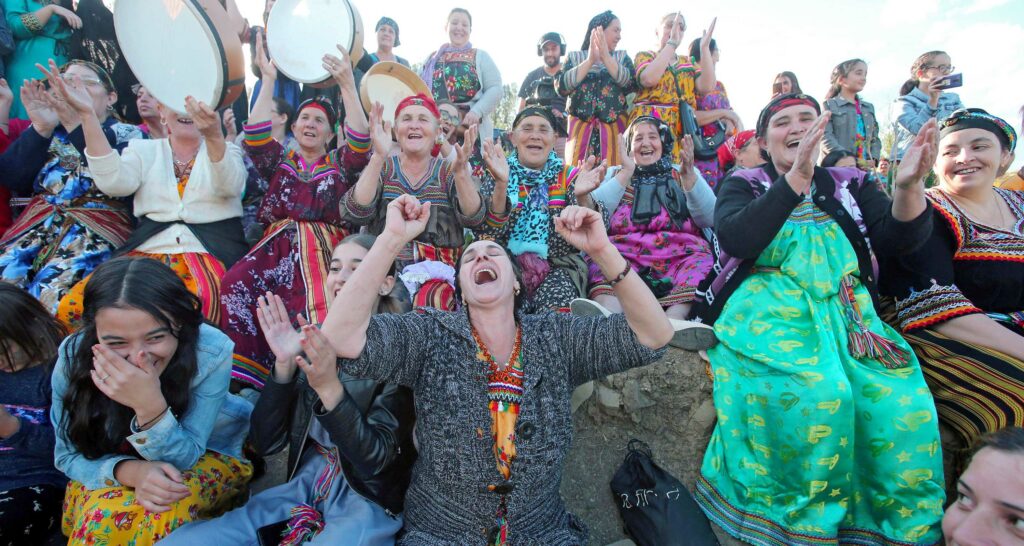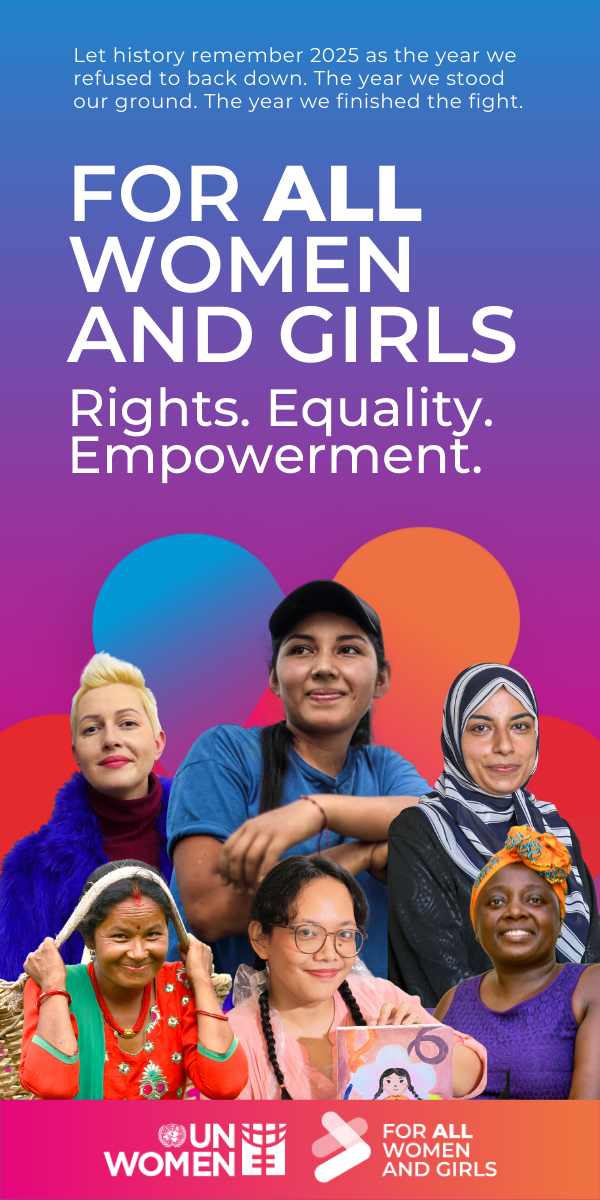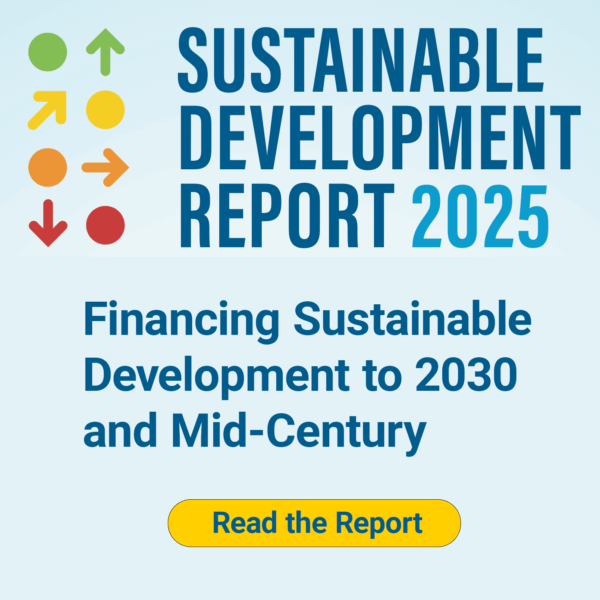Reclaiming religion: reforming family law for gender equality
The rights of women are frequently suppressed under the guise of religious or cultural traditions. How can this be addressed?
Gender — Global

“Time is running” is a Middle Eastern saying that is fit for the occasion. The 2030 deadline is just seven years away and we are still far from achieving the milestones needed for full fruition of the Sustainable Development Goals (SDGs) – especially on gender-related issues. We need to adeptly locate the one or two issues per region that, if addressed now, would help us achieve maximum strides in the little time left.
Implications of religion, family, and law on women and girls
In this context, it is difficult to underplay the role that religion and culture have in shaping the lives of women. I will focus here on religion, particularly in the Muslim world – because that is where I come from and where my work and scholarship lies, but also because religion there still plays a very important and visible role in both public and private life.
On a societal level, many members of Muslim communities – including women – still find important spiritual sustenance in religion, wanting Sharia to govern their lives. On a public level, many Muslim-majority countries declare Islam to be the official state religion in their constitutions, often considering Islamic law a source of legislation. This means that state laws, decrees, or policies have to comply – or at least not clash – with what is seen to constitute“Islamic law.”
The one area that still has significantly strong links to religion is family-related laws and practices. We know that everywhere in the world the family plays a vital role in shaping women’s lives. Families are places of nurturance and growth, but also of potential violence and threat. The family is so important in determining all facets of a woman’s life that it has been repeatedly shown that “failure to ensure the equality of women and girls within the family undermines any attempt to ensure their equality in all areas of society”(page 7 of the Report of the Working Group on the issue of discrimination against women in law and in practice, emphasis mine). So not only is religion important for our conversation, but family also is.
It is the contention of this article that if we are to achieve significant change in the coming seven years until 2030, we must start looking at the “elephant in the room” that is silently blocking real progress in many Muslim contexts: namely, family-related laws and practices, especially those that claim to have the power and sanctity of religion to rest on. It is precisely this power that makes it imperative to respectfully address these issues, despite the delicacy of the endeavour.
It is not uncommon in Muslim contexts to find these laws instituting varying forms of male guardianship over women. One of the important reasons for this is that they are based on a humanly-constructed patriarchal reading of Islamic religious texts. This male guardianship can end up regulating a woman’s life in its entirety. For example, at one end of the spectrum, male guardians are given the right to physically “discipline” women in the family.This can mean physical striking, even if lightly. For example, Iraq’s Penal Code (Law 111 of 1969, article 41) states: “There is no crime if the act is […] the punishment of a wife by her husband.” The Libyan Penal Code’s article 375 reduces punishment of a man who strikes or kills his wife, daughter, or sister if they are found committing unlawful sexual intercourse.
On the other end of the spectrum, many of these man-made laws lock women in violent, abusive relationships because divorce procedures are made to be legally much more difficult for women than men (see the divorce section of Musawah’s Muslim family law tables). Some also condone child marriage. For example, Yemen has no set age, while in Bahrain, Kuwait, Qatar, Iran and Syria the legal age is under 18 (UNDP 2019). Paradoxically, Bahrain and Kuwait have parallel laws in place combating violence against women and girls.
Many laws also say nothing about marital rape, assuming that sexual access is a husband’s God-given right. Some, such as Algeria, Bahrain, Iraq and Kuwait exonerate a rapist from punishment upon marrying their victim to protect family honor.
These laws also extend out to the public sphere. They obligate a wife to be obedient to her husband, where, by law, she would be unable to do much of the following without her husband’s permission: leave the house; seek education; go to work; travel; enjoy medical care; sign contracts; make autonomous decisions; or be the full legal guardian of her children (For more details on these examples, see UNDP’s report Gender Justice and Equality before the law and Musawah’s Muslim family law tables). So even if there are other laws in place that give women the right to work, travel, or even head a country, she will still need to get the permission of her husband to access any of these rights.
Like an octopus reaching out to regulate a woman’s entire existence in Muslim contexts, there is rarely a similar law that is so widely encompassing of all aspects of life. That is why it is too important to be left unexamined at this stage in the SDG trajectory.
The costs of discriminatory family laws
It is not surprising then that in the recent World Bank’s Women, Business and the Law surveys, the overwhelming majority of countries in the bottom 25 have been those with discriminatory family laws, most being Muslim-majority countries.
This has its costs. Family laws and practices significantly affect a country’s overall socio-economic progress. For example,the cost of intimate partner violence is as high as 3.7% of gross domestic product (GDP) in some countries, constituting double the expenditure on education in some cases. In Egypt for example, the cost of domestic violence in 2015 was estimated to cost approximately USD 6.5 billion/year. Obviously, having laws that legalize husbands’ “right” to “discipline” wives, such as found in some Muslim contexts, does little to bring these numbers down, if not outrightly encouraging violence against women.
Another area affected by family laws and practices, with serious national implications, is women’s economic participation. Restrictions on women’s ability to work for pay outside the home cost economies across the Arab region a potential 85% of GDP. Family laws and practices in this area necessitate the husband’s permission for a wife to work, and puts the burden of unpaid domestic labor on women, severely curtailing their ability to work outside the home. For example, Article 38 of Omani law states that a wife’s duty to her husband includes being “responsible for the home and looking after their children.” Article 58 of Qatar’s family law, meanwhile, states that the “rights of the husband as against his wife” are that she should “take care and obey him… look after her and his property well… look after the household,” and “take care of his children.”
So, the costs of these laws are huge – not only for women and girls but also for families and nations in terms of health, well-being, and economic development, among many factors.This is yet another reason to address these laws urgently if real progress is to be made.
Moving forward with reform: can religion play a role?
Where do we go from here? There is an urgent need to unlock the potential of women and nations by reforming these family laws and practices. To do so in Muslim contexts we have to engage constructively with religion as it is often unjustly used to justify discrimination. There is currently no other realistic option.
Luckily, in Islamic law there is a clear demarcation between the divine and the human. Muslims believe that Sharia is the sacred message sent by God to humanity to live the good life. On the other hand, fiqh (jurisprudence in Arabic) is the human attempt to extract worldly laws and rulings from this divine message. Sharia is seen as divine, unchangeable, and eternal, while fiqh is human, continuously evolving and changing with time and place.
| Shari‘ah is God’s will for humanity as revealed to the Prophet Muhammad – the sum total of religious values and principles that can guide Muslims’ lives. Shari‘ah is different from tafsir, the interpretation of Islam’s sacred texts, as well as from fiqh, the deduction of legal rules from the texts. Human-made laws and policies are not the same as Shari‘ah. Source: Musawah Knowledge Building Briefs 01 |
Most family laws and practices in Muslim contexts are largely based on the human, non-sacred fiqh, rendering them open to evolution and reform. It is a fiqh that was mostly created in patriarchal contexts and times, where the concept of gender equality was absent in all cultures, not just Muslim ones. Muslim jurists of the time did their best within their cultural parameters to preserve the rights of women and families by the standards of their time, and it is the turn of current Muslims to continue developing that trajectory.
However, the difficulty lies today in conflating the divine, sacred, unchangeable Sharia with the human-evolving fiqh, equating modern family laws with God’s injunctions. This inaccurate conflation between the divine and human is then used to vehemently oppose reform of these laws which is seen as a punishable defiance to God. In reality however, these laws are only a human approximation and understanding of divine injunctions – they are not themselves divine. Any scholar of Islam would agree to that.
Such an inaccurate conflation is also often used to oppose family law reform for political ends by groups seeking power in Muslim contexts, posing as guardians of religion. As Htun and Weldon state, “the goal of opponents is not to defend religion, culture, and tradition but to uphold the status quo. Family law reform, like other political conflicts, revolves around the struggle for power.”
Interestingly, even though all these state laws are claimed to be based on the same Islam and the same Sharia, none of them is identical to another. Issues such as a wife’s obedience, divorce, male guardianship, polygamy, minimum age of marriage, and inheritance are handled differently in each of these laws (see the UN Gender Justice Reports and Musawah’s country law tables). That is because they are all based on different schools of Islamic jurisprudence created by human jurists across the ages. Not only that, but the history of all Muslim family laws, since they were codified under the modern nation state, has been one of continuous reform and evolution – but only when the state decided that it was convenient to do so. If these laws were indeed sacred and eternal, precluding their reform, they would not have been so different from one another, nor would they have changed as recent history has shown us.
Pathways of legal reform: positive developments in family laws
In spite of the difficulties above, we do find examples of recent positive reforms in family laws and practices around the Muslim world. For example, often using Islamic arguments and jurisprudence we find countries like:
- Morocco, Algeria, and Tunisia removing the wifely obligation of obedience to the husband
- Egypt setting a minimum age of marriage at 18
- Saudi, Lebanon, and Bahrain passing laws fighting domestic violence against women
- Tunisia banning polygamy
- Iraq giving mothers the right to keep custody of their children after remarriage
- Indonesia and Malaysia securing women’s share in matrimonial assets upon divorce or death
- Algeria giving full custody and guardianship over children for divorced mothers
How did these reforms come about? There is a strong yet non-dominant reformist religious discourse that roots itself in Islam’s sacred texts, using Islamic legal methodologies to advance ideals of gender equality and justice unapologetically.[1] It takes equality between humans as its basis when engaging with religious texts, and unearths the arguments that support that from within the religious framework. When there is political will by states for change, we find this reformist discourse reflected in law reforms and policies that promote gender justice and equality to solve real-time problems today.
But how do we cultivate this political will? Research and experience are showing us that women’s movements have been integral in encouraging state reforms on gender-related issues. For example, in a study analyzing measures taken on violence against women (VAW) in 70 states between 1975 and 2005, we find that “the most important and consistent factor driving policy change is feminist activism.”Women’s groups are often the ones that take up the issues, support the individual cases, showcase the national costs, propose solutions, mobilize support, and put pressure for reform.
Women’s movements ask the fundamental question: if women are equal before God, why are they unequal before man? They engage with religion and insert women’s voices and experiences in religious knowledge and jurisprudence. They show that religion and culture can indeed be important resources to solving contemporary problems in societies where religion is still important.
We must accelerate support for women’s movements and states embarking on these family-related law reforms. On a legal level, there have been many pathways for reform when states chose to do so, such as reforming substantive family laws, procedural laws, penal codes, administrative decrees, promulgating new VAW laws, and activating constitutional guarantees of equality, beside other non-legal interventions. So change is not only necessary but also possible.
States in Muslim contexts have been responding to these calls for change, but at a very slow pace because of the religion–politics connection. If we are to make it to 2030 with a successful SDG record, we must go faster and deeper. On a fundamental level, all religions came to elevate the values of justice, equality, and peace between people, helping us to find solutions. So what exactly are we waiting for?
[1] See the works of Khaled Abou El Fadl; Ziba Mir-Hosseini; Amina Wadud; Khalid Masud; Omaima Abou Bakr; Mulki Al Shurmani; Asma Lamrabet; Nasr Hamid Abu Zayd; Nur Rofiah; Faqihuddin Abdul Kodir; Mohsen Kadivar; Nevin Reda; Yasmin Amin; Mahmoud Mohammed Taha; Abdullahi An-Naim; Sa’adiyya Al Shaykh and others.






